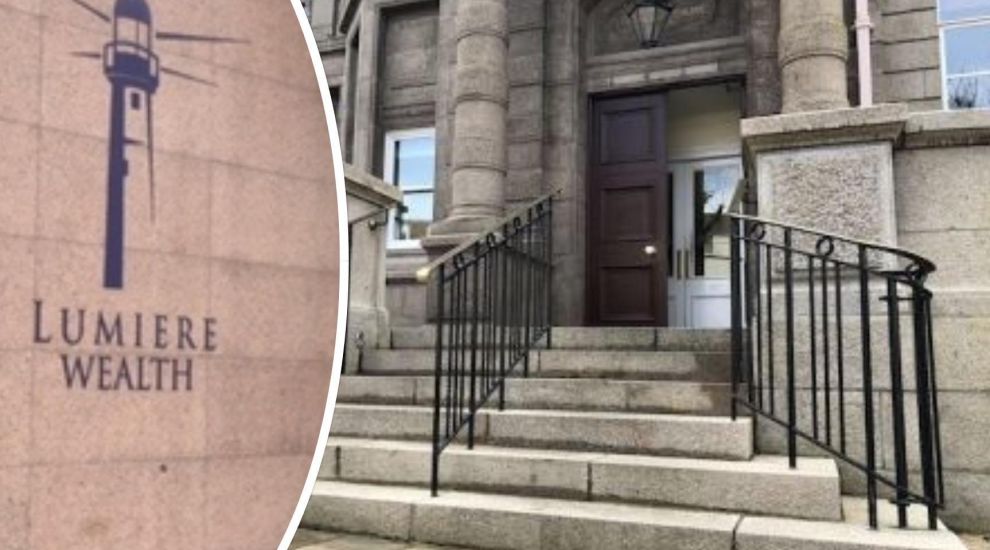

It’s claimed key documents in a £2.7m fraud trial only came to light after being seized by the police at the accused’s St Brelade home.
The prosecution say, under what’s termed a ‘forthwith notice’, they would have expected the papers to have been handed over when the investigation began.
The trial of the former CEO of Lumiere Wealth, 50-year-old Chris Byrne, is now entering its third week. Investors have given their evidence, and attention has now shifted to law enforcement agencies and ‘forensic accountants’ - specialist expert witnesses.
Yesterday afternoon, the court heard from the director of enforcement at the Jersey Financial Services Commission, Barry Faudemer.

Pictured: JFSC director of enforcement Barry Faudemer told the court the Commission had began an investigation into Lumiere Wealth after concerns about its governance.
He told the court the JFSC had began investigating issues surrounding the governance of Lumiere in June 2016, and that on the evening of 17 June he visited Mr Byrne at home and issued a ‘forthwith notice’. This compelled Mr Byrne to hand over all relevant documents, both electronic and paper.
He handed over a laptop and hard drive – ‘a small disc’ – his wife’s computer, and an iPad. But, under questioning from prosecution lawyer, Advocate Simon Thomas, Mr Faudemer told the court, they were only given other key documents after the police seized them at the accused’s house at a later date. He would have expected these to have been handed over at the time.
Defence advocate Olaf Blakeley asked Mr Faudemer if the documents seized by the police were also on the hard drive or any of the electronic devices. He said he didn’t know because analysing the electronic equipment was someone else’s job. It was also highlighted that a forthwith notice is not ongoing. In other words, if Mr Byrne didn’t have the documents at the time, but they did come into his possession afterwards, he was not obliged to hand them over.
Mr Faudemer told the court that when he carried out his home visit Mr Byrne was helpful and had brought to his attention four issues: the alteration of a loan note; a loan from another Lumiere client; an undeclared financial agreement with a company called Providence; and his role as a financial ‘advisor’ in the period between leaving his last job and setting up Lumiere.
One of the 18 counts Mr Byrne is charged with is inducing or attempting to induce an elderly woman to lend him £1million "on terms involving payment of interest or repayment at a premium, by dishonestly concealing the document he invited her to sign was an unsecured personal loan agreement." The court has already heard evidence from the woman herself. But, at yesterday’s hearing, according to research carried out by the JFSC, there was no evidence of the loan having ever been registered with the Royal Court. The defence say Mr Byrne put up his St Brelade home as security.
Other key issues in the trial are whether Mr Byrne should have advised his clients to invest in a company called Providence and if he told them all the relevant facts not only about the company, but about the relationship between the company and Lumiere Wealth.
Providence was a major shareholder in Lumiere. And, according to Mr Faudemer, Mr Byrne told him there was a deal between him and the boss of Providence which hadn’t been declared to the Commission or the directors of Lumiere whereby Mr Byrne would be paid £75,000 every three months for ‘introducing’ clients to Providence.
According to Mr Faudemer’s evidence, Mr Byrne also told him that between leaving his previous job as a financial adviser and getting a licence to operate Lumiere he’d "acted as an intermediary" or "introducer", putting clients in touch with Providence. This is important because Mr Byrne also faces charges of offering financial advice when he wasn’t registered.
Mr Byrne denies the charges, and the trial continues today.
Comments
Comments on this story express the views of the commentator only, not Bailiwick Publishing. We are unable to guarantee the accuracy of any of those comments.